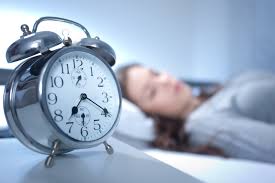Source: 2minutemedicine.com
Medical cannabis was found to exhibit an overall positive effect on maintaining nightime sleep in patients with chronic pain, but frequent use was associated with problems of both waking up at night and falling asleep, according to study findings published in the journal BMJ Supportive & Palliative Care.
Chronic pain is a debilitating condition affecting approximately 19% to 37% of adults in developed countries. Among those affected, there are high rates of comorbid insomnia, which causes symptoms such as difficulty initiating sleep, disrupted sleep, and early morning awakenings. Research on MC has exhibited positive, yet small effect sizes as a pain reliever, with further efficacy being reported on managing sleep.
“Research has demonstrated that the endocannabinoid system has a role in the regulation of sleep, including the maintenance and promotion of sleep,” said the study authors.
They note that many of the studies reporting a significant and positive impact of MC use on sleep are of poor quality due their small size and because the legal status of MC varies, warranting further examination on the growing popularity of MC to manage sleep problems and chronic pain.
The study authors examined the association between the use of whole plant cannabis and sleep problems among 128 patients with chronic pain (mean age, 61 ± 6 years; 49%, males), distinguished as MC users (n = 66) and nonusers (n = 62). Regression models tested the differences in sleep problems between the 2 study cohorts, with Pearson correlations between MC use measures (dose, length and frequency of use, number of strains used, tetrahydrocannabinol/cannabidiol levels) and sleep problems assessed among MC users. The results were adjusted for age, sex, pain level, and use of sleep and antidepressant medications.
Among the entire study cohort, 24.1% reported always waking up early and not falling back asleep, 20.2% reported always having difficulties falling asleep, and 27.2% reported always waking up during the night. Of the comparative study results, MC users were shown to be less likely to wake up at night than nonusers (mean: 4.59 vs 5.54; P = 0.018), with no further differences found in sleep measures between the groups.
In a final analysis of the MC users, Pearson correlations showed that frequency of MC use was the sole association with sleep issues, indicating the potential significance of tolerance among MC users. “Specifically, more frequent use was associated with more problems related to waking up at night and problems falling asleep,” said the study authors.
The researchers highlighted that limitations to the study, including MC administration and specific strain usage, may signal differential effects on sleep, warranting the need for future studies to examine this variability in more detail.
“These findings may have large public health impacts considering the ageing of the population, the relatively high prevalence of sleep problems in this population, along with increasing use of MC,” said the study authors.
